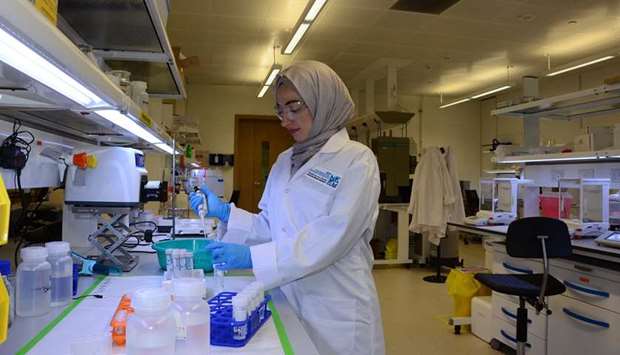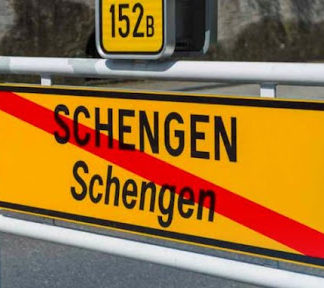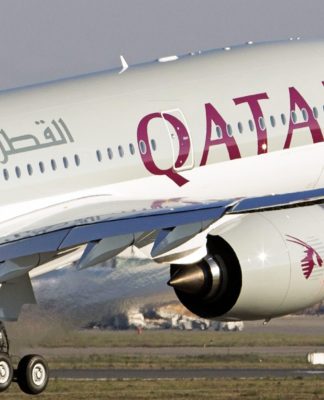
Dr Deema al-Masri at work at Qeeri.
An expert at Qatar Environment and Energy Research Institute (Qeeri), part of Hamad Bin Khalifa University, noted that the novel Coronavirus (Covid-19) has not been detected in drinking water supplies globally.
“Municipal drinking water systems utilise filtration and chlorination steps that are generally thought to be effective in deactivating Covid-19,” Dr Deema al-Masri said. “It is also unlikely to be found in bottled water itself. However, given the suspected lifespan of Covid-19 on plastic, when buying bottled water from a supermarket or water delivery, care should be taken with handling of the packaging,” she suggested.
Dr al-Masri also noted that the Covid-19 virus is an enveloped virus, with a fragile outer membrane. “Generally, enveloped viruses are less stable in the environment and are more susceptible to oxidants, such as chlorine. While there is no evidence to date about survival of the Covid-19 virus in water or sewage, the virus is likely to become inactivated faster than non-enveloped human enteric viruses with known waterborne transmission,” she added.
According to the World Health Organisation (WHO), there is no evidence that Covid-19 is transmitted in wastewater treatment systems or in treated wastewater. Wastewater treatment plants treat viruses and other bacteria. WHO recommends the use of standard, well-maintained plumbing, such as sealed bathroom drains, and backflow valves on sprayers and faucets to prevent aerosolised faecal matter from entering the plumbing or ventilation system, together with standard wastewater treatment.
“Municipal drinking water systems utilise filtration and chlorination steps that are generally thought to be effective in deactivating Covid-19,” Dr Deema al-Masri said. “It is also unlikely to be found in bottled water itself. However, given the suspected lifespan of Covid-19 on plastic, when buying bottled water from a supermarket or water delivery, care should be taken with handling of the packaging,” she suggested.
Dr al-Masri also noted that the Covid-19 virus is an enveloped virus, with a fragile outer membrane. “Generally, enveloped viruses are less stable in the environment and are more susceptible to oxidants, such as chlorine. While there is no evidence to date about survival of the Covid-19 virus in water or sewage, the virus is likely to become inactivated faster than non-enveloped human enteric viruses with known waterborne transmission,” she added.
According to the World Health Organisation (WHO), there is no evidence that Covid-19 is transmitted in wastewater treatment systems or in treated wastewater. Wastewater treatment plants treat viruses and other bacteria. WHO recommends the use of standard, well-maintained plumbing, such as sealed bathroom drains, and backflow valves on sprayers and faucets to prevent aerosolised faecal matter from entering the plumbing or ventilation system, together with standard wastewater treatment.





























